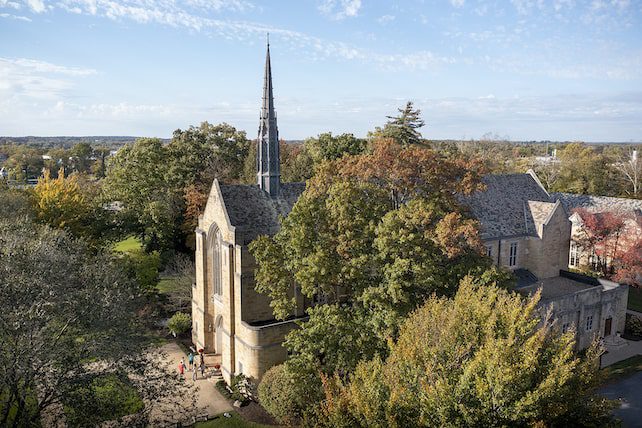“Bible Answer Man” Hank Hanegraaff says that Russia’s war against Ukraine is not a sign of the “end times.” In a broadcast last week, Hanegraaff addressed “prophecy pundits,” such as Pat Robertson, who believe that the Bible references the current war.
“If we misunderstand the history of the Bible, we can come up with all kinds of sensationalistic scenarios,” said Hanegraaff, who is president and chairman of the board of the Christian Research Institute. Hanegraaff said his goal in addressing this topic was not to offer commentary on the war in Ukraine, but “to communicate how horrifying it is to misunderstand the sacred words of Scripture.”
End Times Are Not Upon Us, Says Hank Hanegraaff
“The prophecy pundits are at it again,” said Hank Hanegraaff in a March 8 broadcast in which he repeatedly emphasized the importance of understanding semantics, that is, the “science of meaning.”
Several prominent Christian leaders have recently addressed the question of whether the war in Ukraine fulfills biblical prophecy and is a sign of the end times. Among them is Greg Laurie, senior pastor of Harvest Christian Fellowship in Riverside, Calif. Laurie sees the current war as indicative of the “wars and rumors of wars” Jesus said would precede “the end of the age.” Laurie also believes that the land of “Magog,” which is mentioned in Ezekiel 38, represents modern-day Russia, and he indicated that Russia could eventually move against Israel.
Ezekiel 38:1-9 says:
The word of the LORD came to me: “Son of man, set your face against Gog, of the land of Magog, the chief prince of Meshek and Tubal; prophesy against him and say: ‘This is what the Sovereign LORD says: I am against you, Gog, chief prince of Meshek and Tubal. I will turn you around, put hooks in your jaws and bring you out with your whole army—your horses, your horsemen fully armed, and a great horde with large and small shields, all of them brandishing their swords. Persia, Cush and Put will be with them, all with shields and helmets,
also Gomer with all its troops, and Beth Togarmah from the far north with all its troops—the many nations with you. “‘Get ready; be prepared, you and all the hordes gathered about you, and take command of them. After many days you will be called to arms. In future years you will invade a land that has recovered from war, whose people were gathered from many nations to the mountains of Israel, which had long been desolate. They had been brought out from the nations, and now all of them live in safety.
You and all your troops and the many nations with you will go up, advancing like a storm; you will be like a cloud covering the land.
Pat Robertson, founder of the Christian Broadcasting Network and former host of “The 700 Club,” also sees connection between Russia and modern-day Israel and the events described in Ezekiel 38. Robertson explained the parallels he sees between the passage and current events in a special appearance on “The 700 Club.” He believes that in the future Russia will join with other nations, such as Turkey, Iran, and North Sudan, to attack Israel.
“You can say, well, Putin’s out of his mind,” said Robertson. “Yes, maybe so. But at the same time, he’s being compelled by God. He went into the Ukraine, but that wasn’t his goal. His goal was to move against Israel, ultimately.”
In his broadcast, Hanegraaff referred to Robertson’s comment that Putin might be out of his mind, saying, “That may be true, but so is Pat Robertson.”























